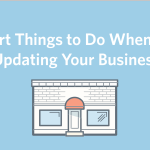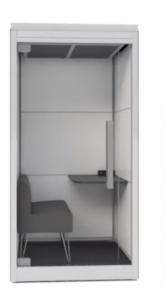
Those who are self-employed have different tax issues to worry about compared to those who are employed by another person or company. If you work for yourself, you generally have to pay your own taxes, carry your own health insurance and carry your own worker’s compensation insurance. What are some ways to make tax time easier for sole proprietors or those who run their own small businesses?
You Must Pay Taxes Owed by April 18
For sole proprietors, both personal and business income taxes are due on April 18. However, you may file for an extension to file your personal and business income tax return by October 18. If you fail to pay your taxes by the April 18 due date, you could face fines or other financial penalties.
If you operate as an s-corporation, you generally file your corporate tax return by March 15 and your personal tax return on April 15. As profits or losses flow through to your personal tax return, the corporate return is just a listing of business activities for the year. Fines or other penalties may apply if the return is not filed on time.
Any Necessary and Ordinary Business Expense Can Be Deducted
There are many effective ways for those with self-employment income to reduce the amount that they owe to the government. For instance, you may be able to deduct the cost of meals at a business dinner or the cost of gas to drive your car there. Furthermore, you could be entitled to deduct the cost to lease a business vehicle or the percentage of the vehicle that is used for business purposes.
If you have a home office, it may be possible to take a deduction for the business use of that room. Related expenses such as an extra phone line, the cost to add furniture for client use or the cost of utilities such as lights or heat needed to keep the room comfortable may also be deducted.
Other common deductions include health care premiums or retirement contributions. If you paid employees or paid for memberships to a trade group or online webinar series, those costs can be deducted as well. If you have any questions as to whether an expense can be deducted, you should talk to a financial adviser as soon as possible.
Take Any Deduction That You Qualify For
There is a myth that those who are self-employed are more likely to be audited by the IRS or by a state government. However, this is not the case. If you are audited, it is likely an attempt by the government to obtain more information about a deduction. As long as you have the right paperwork or other documentation to verify that it is valid, don’t hesitate to take it. There is never a good reason to pay more than you owe to the IRS or to a state government tax agency.
Tax Software May Make Filing and Paying Taxes Easier
There is almost no good reason for a self-employed individual to file a paper tax return. Current software programs make it fast and easy to check for deductions, upload information to relevant tax forms and make tax payments in a matter of minutes. If you don’t want to use a tax software program, you may want to consider working with an accountant who can review your records and file a timely and accurate return.
Working for yourself may allow you the freedom to pursue goals and dreams that may not have existed in the corporate environment. However, it also means that you have to account for your own expenses and make sure that taxes are paid on time. Fortunately, there are many human and digital resources available to help make sure that your taxes are done properly.
Business & Finance Articles on Business 2 Community(58)








